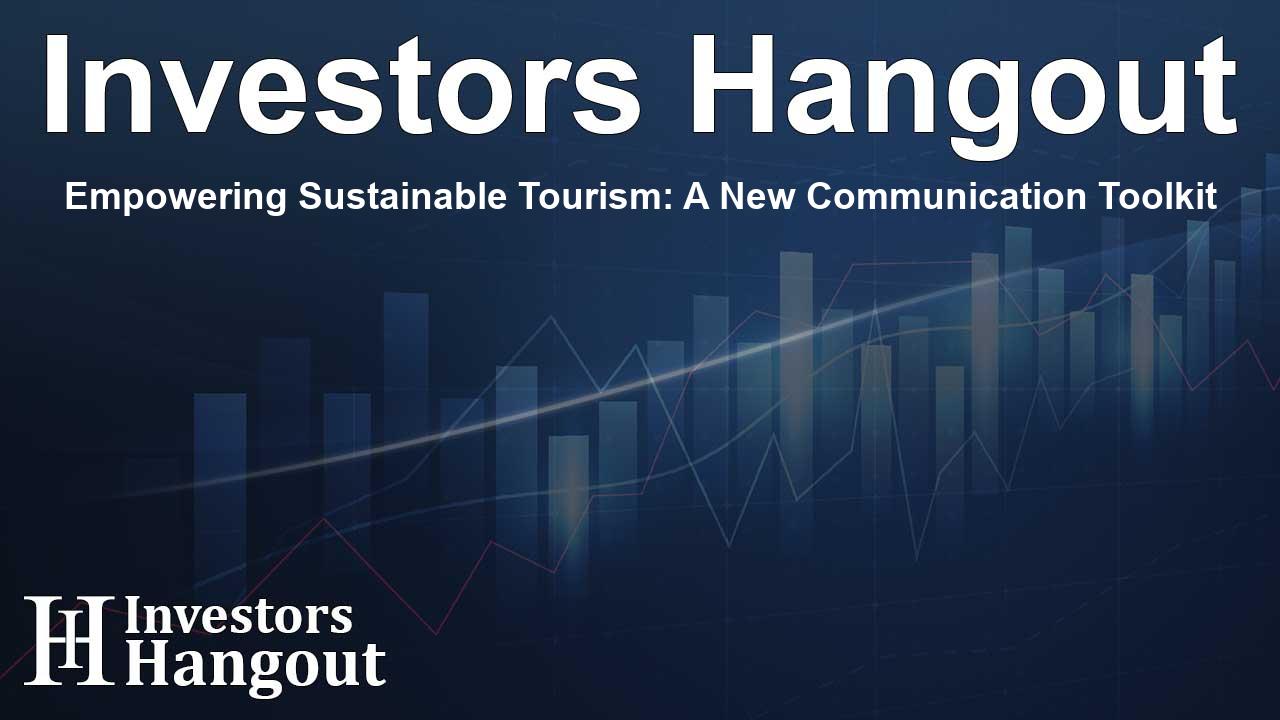Empowering Sustainable Tourism: A New Communication Toolkit

Empowering Sustainable Tourism: A New Communication Toolkit
The European Commission has unveiled a comprehensive Communication Toolkit aimed at assisting tourism destinations and stakeholders in promoting sustainable tourism and responsible travel across the European Union. This initiative emerges from the broader commitment to support sustainability in the tourism sector, particularly as the industry adapts to new challenges and evolving expectations.
Support for Sustainable Tourism Initiatives
The toolkit is an integral part of the Sustainable EU Tourism initiative, designed to guide destinations as they navigate the green and digital transformation of the tourism landscape. By providing ready-made content and sharing successful experiences from various stakeholders, the toolkit serves as a crucial resource for aligning local efforts with the EU's sustainability objectives.
Addressing the Shift in Travel Dynamics
As the tourism industry continues to rebound and transform in the wake of significant disruptions, such as the COVID-19 pandemic, the call for innovative approaches to travel has become more critical than ever. The European Commission seeks to empower locations to proactively communicate their sustainable practices and beckon travelers towards a more responsible and mindful approach to exploration.
Progress and Engagement in Sustainability
Three years after launching the Transition Pathway for Tourism, the European Commission has highlighted substantial advancements in sustainability. With engagement from numerous tourism stakeholders, over 240 organizations have collectively pledged more than 500 commitments to support resilient and sustainable tourism. Such commitments lay a robust foundation for the future and foster collaboration among diverse actors in the tourism ecosystem.
Concrete Examples of Sustainability Pledges
A prime illustration of a successful initiative is the CopenPay project by Wonderful Copenhagen, which incentivizes sustainable tourist behavior by offering rewarding cultural experiences. The momentum from these pledges will be fundamental as the upcoming EU Sustainable Tourism Strategy takes shape, inviting feedback from both citizens and stakeholders alike to enrich the strategy with diverse perspectives.
Toolkit Components: A Resource for All
The toolkit consists of an extensive suite of free, downloadable materials tailored to meet the specific needs of different audiences. It includes a project overview, a compilation of real-world success stories from proactive destinations, a practical infographic with tips for responsible travel, as well as social media assets designed for engaging travelers. Additionally, stakeholders can access four detailed case studies highlighting successful sustainable tourism initiatives.
Utilizing Resources for Maximum Impact
Destination management organizations (DMOs), local authorities, and tourism boards will find the resources particularly beneficial as they integrate the toolkit's content into their communication strategies. From newsletters to online campaigns, the material can be adapted for a variety of professional and traveler-facing communications, enhancing outreach and fostering a deeper connection with their audiences.
About the Sustainable EU Tourism Project
The Sustainable EU Tourism initiative is dedicated to furthering the EU's tourism priorities while nurturing collaboration, resilient practices, and sustainability within the sector. With participation from over 200 destinations and a wealth of research backing the project, it aims to foster transformative advancements in European tourism that yield lasting advantages for communities and the environment alike.
Best Practices from Leading Destinations
With a collection of best practices drawn from 50 destinations, the project offers significant insights ready for adoption and implementation. This alignment towards sustainability signifies a promising transition for tourism in Europe.
Frequently Asked Questions
What is the purpose of the Communication Toolkit?
The Communication Toolkit aims to assist tourism stakeholders in effectively promoting sustainable tourism and responsible travel across the EU.
How does the toolkit support the recovery of the tourism sector?
It provides resources that enable destinations to communicate their sustainable practices, thereby encouraging responsible travel as the industry recovers from disruptions.
What kind of content is included in the toolkit?
The toolkit includes an overview, success stories, practical tips, social media posts, and visual assets that can be customized for local use.
Who can benefit from the toolkit?
Destination management organizations, local authorities, tourism boards, and other stakeholders can utilize the toolkit to enhance their communication strategies.
How does the Sustainable EU Tourism project aim to impact local communities?
The project seeks to foster sustainable practices that offer long-term benefits to local communities while promoting environmental stewardship in the tourism sector.
About The Author
Contact Henry Turner privately here. Or send an email with ATTN: Henry Turner as the subject to contact@investorshangout.com.
About Investors Hangout
Investors Hangout is a leading online stock forum for financial discussion and learning, offering a wide range of free tools and resources. It draws in traders of all levels, who exchange market knowledge, investigate trading tactics, and keep an eye on industry developments in real time. Featuring financial articles, stock message boards, quotes, charts, company profiles, and live news updates. Through cooperative learning and a wealth of informational resources, it helps users from novices creating their first portfolios to experts honing their techniques. Join Investors Hangout today: https://investorshangout.com/
The content of this article is based on factual, publicly available information and does not represent legal, financial, or investment advice. Investors Hangout does not offer financial advice, and the author is not a licensed financial advisor. Consult a qualified advisor before making any financial or investment decisions based on this article. This article should not be considered advice to purchase, sell, or hold any securities or other investments. If any of the material provided here is inaccurate, please contact us for corrections.
